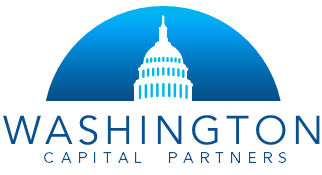Before choosing your hard money lender, make sure you know exactly who you’re getting involved with. Some lenders will have hidden fees and policies that you won’t discover until you get the preliminary HUD. In order to avoid this, there are some crucial questions to ask before you sign any loan documents.
1) What are your fees?
Knowing exactly what fees you will have to pay will help you decide whether or not you should invest. Some lenders will offer a very low interest rate in order to intrigue investors, only to hit you with thousands of dollars in flat junk fees. Several lenders have these “junk fees” for things like underwriting, loan servicing, construction draws, and draw inspections. Not all fees are necessarily “junk fees,” but keep in mind that any reputable lender will be able to justify any and all of their fees to you before you commit to their services. The good news is, there are lenders out there that won’t charge you any junk fees. At WCP, we want you to be a successful investor so that you will continue to use our services and grow our relationship. We’re not going to achieve this goal by nickel and diming our clients.
2) What are your terms?
Your potential lender should lay out in detail items such as the length of their loans, origination points, and maximum loan to value ratio. In addition, ask your lender whether the interest is paid monthly or if there’s an interest reserve that’s required. Hard money loans are unique from traditional loans, so while you may know the ins and outs of bank loans, you can’t necessarily depend on that knowledge when seeking a private loan. Regulations and requirements are different for each industry, so be sure to always ask questions to expand your knowledge.
3) Do you support acquisition and construction funding? If so, how much?
Having a lender that can finance everything you need from acquisition to construction means less hassle for you, the borrower. Even if you don’t need all the services offered by the lender, rest assured in knowing that they have the ability to provide you with a variety of financing services, should your circumstances change.
4) Do you offer bridge lending?
Some lenders will provide short-term financing to allow you to close on a property if you have traditional sources of funding lined up. For example, if you have a commercial bank that you have a line of credit or a current loan with, we can provide 30-60 day bridge loans for significantly cheaper rates than longer-term loans to allow you to bridge the gap. Be sure to ask whether an institution supports bridge funding or not.
5) What documents do you require?
Typically, asset-based lenders only need corporate documents in order to close. Make sure to ask your lender exactly what they require, as the list of documents can often be extensive.
6) What is the draw process?
Ask your lender to go over the complete draw process before you agree to work with them. You want to make sure you will be able to get your money when you need it. A lender with a quick draw process is good to have in case you encounter any emergencies with your property and you need the funds to clear it up. Additionally, ask your lender whether they will fund the draws up front, or if you will be reimbursed for the draws. Many lenders require you to initially fund draws out of your own pocket and then, assuming you have met certain requirements and milestones in your construction process, they will release the funds.
7) Do you have your own in-house inspector?
It’s important to ask about a lender’s property inspector. Are they in-house or a third-party? If a lender uses a third-party inspector, those draw payments can be delayed since the lender doesn’t have control over the inspector’s schedule. Your lender needs to be clear upfront, and give an accurate expectation for construction draw delays due to inspector availability.

